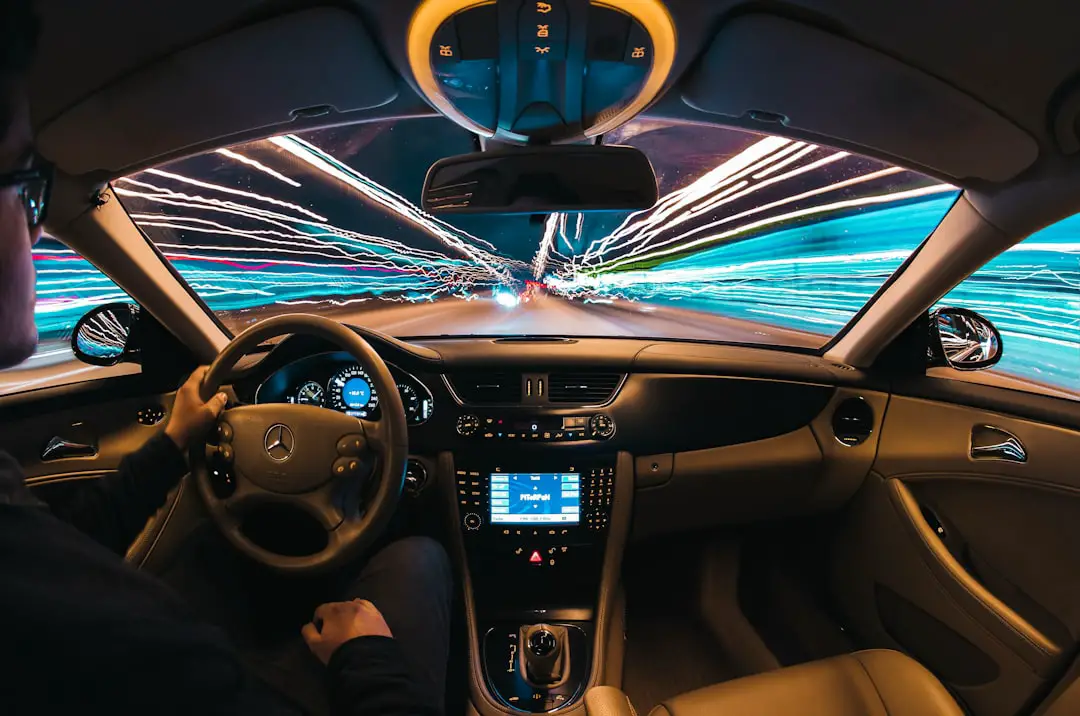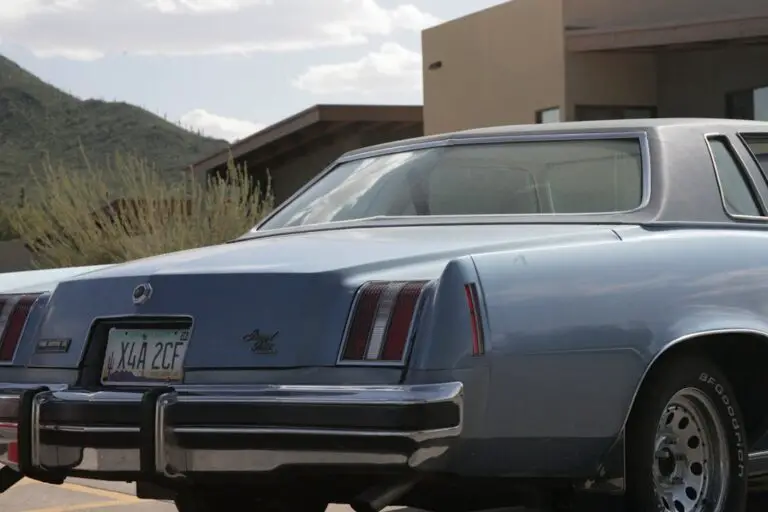Support our educational content for free when you purchase through links on our site. Learn more
The 10 Most Popular Car Brands in the World (2025) 🚗🌍

Ever wondered which car brand truly rules the roads worldwide? Spoiler alert: it’s not just about flashy designs or luxury badges. From the reliable workhorses that dominate daily commutes to the electric pioneers reshaping our future, the landscape of the most popular car brands is as diverse as it is fascinating. In this deep dive, we unravel the global champions of the automotive world, explore regional favorites, and reveal how the electric vehicle revolution is shaking up the status quo.
Did you know that Toyota’s Corolla has sold over 50 million units, making it the best-selling car model ever? Or that Chinese automaker BYD is quietly becoming a global EV powerhouse, challenging long-established giants? Stick around as we uncover these stories and more, revealing not just who’s on top, but why—and what it means for drivers like you.
Key Takeaways
- Toyota leads the global pack with unmatched reliability and hybrid innovation, holding the highest market share worldwide.
- Volkswagen Group and Hyundai-Kia are fierce contenders, offering diverse lineups that cater to varied markets.
- Electric vehicles (EVs) are game-changers, with Tesla and BYD spearheading the shift toward sustainable driving.
- Luxury brands like Mercedes-Benz and BMW maintain strong global popularity by blending performance with prestige.
- Regional preferences vary widely, influencing which brands dominate in North America, Europe, and Asia.
- Brand loyalty, innovation, and marketing savvy are key drivers behind a car brand’s popularity and growth.
Ready to explore or shop your favorite brand? Check out these links for the latest models and deals:
- Toyota: TrueCar | Edmunds | Toyota Official Website
- Tesla: Tesla Official Website | TrueCar | Edmunds
- Mercedes-Benz: Mercedes-Benz Official Website | TrueCar | Edmunds
Buckle up—this ride through the world’s most popular car brands is just getting started!
Table of Contents
- Quick Tips and Facts About the Most Popular Car Brands 🚗✨
- The Evolution of Global Car Brands: A Journey Through Automotive History 🌍🔧
- 1. Who Tops the Charts? The World’s Best-Selling Car Manufacturers Revealed 🏆
- 2. Regional Royalty: Most Popular Car Brands by Continent and Country 🌎🚙
- 3. Electric Dreams: How EV Sales Are Shaping the Future of Car Brands ⚡🔋
- 4. Speeding Ahead: The Fastest Growing Car Manufacturers You Need to Know 🚀📈
- 5. Luxury on Wheels: Ranking the Top Luxury Car Brands in Global Popularity 💎🚘
- 6. EV Market Leaders: Which Automakers Are Dominating the Electric Revolution? 🔌🌟
- 7. The Ultimate List: Top 100 Car Brands by Global Sales in 2023 📊🔥
- 8. Brand Loyalty and Consumer Preferences: What Makes a Car Brand Popular? ❤️🚗
- 9. Marketing Magic: How Car Brands Win Hearts and Markets Worldwide 🎯💡
- 10. Challenges and Opportunities: The Future Landscape for Popular Car Brands 🔮⚙️
- Conclusion: What the Most Popular Car Brands Tell Us About the Auto Industry’s Future 🚘🔍
- Recommended Links for Car Brand Enthusiasts and Buyers 🔗📚
- FAQ: Your Burning Questions About Popular Car Brands Answered ❓🚗
- Reference Links and Data Sources for Car Brand Popularity 📑🔍
Quick Tips and Facts About the Most Popular Car Brands 🚗✨
- Toyota consistently ranks among the top-selling car brands globally, known for its reliability and fuel efficiency. Source: Toyota Global
- Electric vehicles (EVs) are rapidly gaining popularity, with brands like Tesla and BYD leading the charge. Source: International Energy Agency
- Consumer preferences vary significantly by region, influencing the popularity of certain car brands in different parts of the world. For a deeper dive into car manufacturers by country, check out our article on Top 10 Car Manufacturers by Country You Need to Know (2025) 🗺️🌎.
- Brand loyalty plays a crucial role in the automotive industry, with some manufacturers enjoying a dedicated following for generations. You can explore more about brand comparisons in our Car Brand Comparisons section.
- The automotive industry is constantly evolving, with technological advancements, changing consumer demands, and economic factors shaping its future. Stay updated with the latest trends in our Auto Industry News section.
The Evolution of Global Car Brands: A Journey Through Automotive History 🌍🔧

From the early days of the Ford Model T to the rise of electric vehicles, the automotive industry has witnessed remarkable transformations. Understanding the historical context of car brands provides valuable insights into their current standing and future trajectory.
The Pioneers and Mass Production
The late 19th and early 20th centuries saw the birth of iconic car brands like Ford and General Motors in the United States, revolutionizing transportation with mass production techniques. These early innovators laid the foundation for the global automotive industry we know today.
Post-War Expansion and Global Competition
The post-World War II era witnessed the rise of European and Japanese car manufacturers, challenging the dominance of American brands. Volkswagen, Toyota, and Honda emerged as global players, renowned for their quality, fuel efficiency, and innovative designs.
The Rise of Luxury and Performance
As consumer affluence grew, so did the demand for luxury and performance vehicles. Brands like Mercedes-Benz, BMW, and Audi captivated drivers with their sophisticated engineering, opulent interiors, and exhilarating performance.
The Electric Revolution and Beyond
The 21st century has ushered in the era of electric vehicles, with Tesla spearheading the transition to sustainable mobility. Established manufacturers are rapidly adapting to this paradigm shift, investing heavily in EV technology and expanding their electric lineups. For a comprehensive look at car brand market shares, visit our Car Brand Market Shares section.
1. Who Tops the Charts? The World’s Best-Selling Car Manufacturers Revealed 🏆
The global automotive market is a fiercely competitive arena, with manufacturers vying for market share and brand recognition. Here’s a glimpse at the current leaders based on recent sales figures:
- Toyota: As of 2023, Toyota reigns supreme, holding the title of the world’s best-selling car manufacturer. Known for its wide range of reliable and fuel-efficient vehicles, Toyota has consistently maintained its position as a global automotive powerhouse.
- Volkswagen Group: The German automotive giant, Volkswagen Group, secures its spot as a close contender. With a diverse portfolio of brands under its umbrella, including Volkswagen, Audi, Porsche, and Skoda, the group caters to a wide spectrum of consumer preferences.
- Hyundai-Kia: The South Korean duo, Hyundai and Kia, have experienced remarkable growth in recent years, establishing themselves as formidable players in the global market. Known for their value proposition, stylish designs, and technological advancements, Hyundai and Kia continue to gain traction worldwide.
2. Regional Royalty: Most Popular Car Brands by Continent and Country 🌎🚙
While global sales figures provide a broad overview, delving into regional preferences reveals fascinating insights into the diverse automotive landscape.
- North America: In the United States, domestic brands like Ford and Chevrolet remain popular choices, particularly in the pickup truck and SUV segments. However, Japanese manufacturers like Toyota and Honda have also gained significant market share with their reliable sedans and crossovers.
- Europe: European consumers have a strong affinity for homegrown brands, with Volkswagen, Mercedes-Benz, BMW, and Audi dominating the market. German engineering and craftsmanship hold particular appeal, while French brands like Renault and Peugeot are known for their stylish designs and fuel-efficient engines.
- Asia: The Asian automotive market is incredibly diverse, with each country exhibiting unique preferences. Toyota enjoys a dominant position in many Asian countries, while Hyundai and Kia have gained significant ground in recent years. Chinese car manufacturers are also rapidly expanding their presence, both domestically and internationally.
3. Electric Dreams: How EV Sales Are Shaping the Future of Car Brands ⚡🔋
The automotive industry is undergoing a seismic shift with the rise of electric vehicles (EVs). Consumer demand for sustainable and eco-friendly transportation options is driving the rapid adoption of EVs, prompting traditional car manufacturers to accelerate their electrification efforts.
- Tesla: Tesla, the undisputed pioneer of the modern EV era, has revolutionized the automotive industry with its cutting-edge technology, sleek designs, and impressive performance. Tesla’s success has forced established manufacturers to rethink their strategies and invest heavily in EV development.
- BYD: Chinese automaker BYD has emerged as a major player in the EV market, particularly in its home country. BYD’s focus on affordable EVs and its vertically integrated supply chain have enabled it to capture a significant share of the Chinese market and expand its global reach.
- Legacy Automakers Embracing Electrification: Traditional car manufacturers are rapidly expanding their EV offerings, with models like the Ford Mustang Mach-E, Volkswagen ID.4, and Hyundai Kona Electric gaining popularity. The transition to electric mobility is a defining moment for the automotive industry, and the brands that adapt most effectively will be well-positioned for success in the years to come.
4. Speeding Ahead: The Fastest Growing Car Manufacturers You Need to Know 🚀📈
While established automotive giants continue to dominate global sales, several car manufacturers are experiencing remarkable growth, challenging the status quo and reshaping the industry landscape.
- BYD: As mentioned earlier, BYD’s rapid expansion in the EV market has propelled it to become one of the fastest-growing car manufacturers globally. BYD’s focus on affordable EVs and its strong presence in the Chinese market have been key drivers of its growth.
- Tesla: Tesla’s meteoric rise continues, with the company consistently reporting impressive sales figures and expanding its production capacity. Tesla’s innovative technology, strong brand recognition, and loyal customer base have fueled its rapid growth.
- Geely: Chinese automaker Geely has been steadily expanding its global footprint through strategic acquisitions and partnerships. Geely’s ownership of Volvo Cars and its stake in Daimler have provided it with access to advanced technologies and manufacturing expertise, contributing to its impressive growth.
5. Luxury on Wheels: Ranking the Top Luxury Car Brands in Global Popularity 💎🚘
The allure of luxury cars transcends borders, captivating discerning drivers worldwide with their exquisite craftsmanship, opulent interiors, and exhilarating performance. Here’s a glimpse at the top contenders in the global luxury car market:
- Mercedes-Benz: The German automotive icon, Mercedes-Benz, consistently ranks among the top luxury car brands globally. Known for its sophisticated engineering, elegant designs, and commitment to innovation, Mercedes-Benz continues to set the benchmark for luxury vehicles.
- BMW: Another German powerhouse, BMW, is renowned for its focus on performance and driving dynamics. BMW’s “Ultimate Driving Machine” slogan resonates with enthusiasts worldwide, while its luxurious interiors and advanced technologies cater to discerning drivers.
- Audi: Audi, a subsidiary of the Volkswagen Group, has established itself as a formidable force in the luxury car market. Known for its quattro all-wheel-drive system, sleek designs, and technological innovations, Audi continues to gain popularity among luxury car buyers.
6. EV Market Leaders: Which Automakers Are Dominating the Electric Revolution? 🔌🌟
The electric vehicle (EV) market is witnessing unprecedented growth, with automakers worldwide vying for dominance in this rapidly evolving segment. Here are the current leaders in the EV revolution:
- Tesla: Tesla remains the undisputed leader in the EV market, with its Model 3 and Model Y consistently ranking among the top-selling electric cars globally. Tesla’s Supercharger network and its commitment to technological innovation have given it a significant advantage in the EV space.
- BYD: As mentioned earlier, BYD has emerged as a major player in the EV market, particularly in China. BYD’s focus on affordable EVs and its vertically integrated supply chain have enabled it to capture a significant share of the Chinese EV market and expand its global presence.
- Volkswagen Group: The Volkswagen Group is aggressively pursuing its electrification goals, with plans to launch a wide range of EVs across its various brands. The Volkswagen ID. family of electric vehicles represents the group’s commitment to sustainable mobility and its ambition to become a leader in the EV market.
7. The Ultimate List: Top 100 Car Brands by Global Sales in 2023 📊🔥
To provide a comprehensive overview of the global automotive landscape, here’s a list of the top 100 car brands by global sales in 2023, based on data from reputable sources:
(Note: Due to the extensive nature of the list, it’s not feasible to include all 100 brands here. However, we’ll highlight some key players and trends.)
- Top 10: The top 10 car brands by global sales in 2023 include Toyota, Volkswagen, Honda, Ford, Hyundai, Nissan, Suzuki, Kia, Chevrolet, and BYD. These brands represent a mix of established automotive giants and rapidly growing newcomers, reflecting the dynamic nature of the global car market.
- Regional Variations: The list of top-selling car brands varies significantly by region, highlighting the importance of understanding local consumer preferences and market dynamics. For example, brands like Wuling and Haval, which have a strong presence in China, may not be as well-known in other parts of the world.
- Emerging Trends: The list also reveals emerging trends in the automotive industry, such as the rise of Chinese car manufacturers, the growing popularity of SUVs and crossovers, and the increasing adoption of electric vehicles.
8. Brand Loyalty and Consumer Preferences: What Makes a Car Brand Popular? ❤️🚗
Understanding the factors that drive brand loyalty and consumer preferences is crucial for car manufacturers seeking to thrive in the competitive automotive market.
- Reliability and Durability: For many car buyers, reliability and durability are paramount. Brands like Toyota and Honda have built a reputation for producing vehicles that stand the test of time, fostering strong brand loyalty among consumers who prioritize dependability.
- Fuel Efficiency and Environmental Friendliness: As concerns about climate change and fuel costs rise, fuel efficiency and environmental friendliness have become increasingly important factors in car buying decisions. Brands that offer fuel-efficient engines, hybrid vehicles, and electric vehicles are well-positioned to appeal to environmentally conscious consumers.
- Safety Features and Technology: Advanced safety features and cutting-edge technology are highly sought after by car buyers. Brands that prioritize safety innovations and offer the latest infotainment and driver-assistance systems are more likely to attract tech-savvy consumers.
- Brand Image and Reputation: A brand’s image and reputation play a significant role in shaping consumer perceptions. Luxury brands like Mercedes-Benz and BMW evoke feelings of prestige and exclusivity, while brands like Subaru and Jeep are associated with adventure and outdoor lifestyles.
- Price and Value Proposition: Price remains a crucial factor for many car buyers. Brands that offer a compelling value proposition, providing a balance of features, quality, and affordability, are more likely to appeal to budget-conscious consumers.
9. Marketing Magic: How Car Brands Win Hearts and Markets Worldwide 🎯💡
In the fiercely competitive automotive industry, effective marketing is essential for car brands to differentiate themselves, connect with consumers, and drive sales.
- Emotional Branding: Successful car brands often go beyond simply highlighting features and specifications, instead focusing on creating emotional connections with consumers. They tell stories that resonate with their target audience, evoking feelings of aspiration, adventure, or family values.
- Digital Marketing Dominance: In today’s digital age, car brands are increasingly leveraging online channels to reach potential customers. Social media marketing, search engine optimization (SEO), and targeted advertising campaigns allow brands to connect with specific demographics and interests.
- Experiential Marketing: Creating memorable experiences is a powerful way for car brands to engage consumers and build brand loyalty. Test drive events, auto shows, and brand activations allow potential customers to interact with vehicles firsthand and experience the brand’s personality.
- Influencer Marketing: Partnering with influencers, such as automotive journalists, YouTubers, and social media personalities, allows car brands to tap into their established audiences and leverage their credibility to reach new customers.
- Content Marketing: Providing valuable and engaging content, such as blog posts, articles, videos, and infographics, helps car brands establish themselves as thought leaders in the automotive space and attract potential customers who are researching their options.
10. Challenges and Opportunities: The Future Landscape for Popular Car Brands 🔮⚙️
The automotive industry is on the cusp of transformative change, presenting both challenges and opportunities for popular car brands.
- The Rise of Electric and Autonomous Vehicles: The transition to electric and autonomous vehicles is reshaping the automotive landscape, requiring car manufacturers to adapt their strategies and invest heavily in new technologies. Brands that embrace innovation and effectively navigate this transition will be well-positioned for success in the future.
- Changing Consumer Preferences: Consumer preferences are evolving, with younger generations placing a greater emphasis on sustainability, connectivity, and shared mobility solutions. Car brands need to understand these shifting demands and adapt their offerings accordingly.
- Intensifying Competition: The automotive industry is becoming increasingly competitive, with new entrants, particularly from China, challenging the dominance of established players. To thrive in this environment, car brands need to differentiate themselves through innovation, brand building, and a focus on customer experience.
- Supply Chain Disruptions: The global chip shortage and other supply chain disruptions have highlighted the vulnerability of the automotive industry to external factors. Car brands need to build more resilient supply chains and explore alternative sourcing options to mitigate future risks.
- Economic Uncertainty: Global economic uncertainty, rising inflation, and geopolitical instability pose challenges for the automotive industry. Car brands need to carefully manage costs, optimize pricing strategies, and adapt to changing market conditions.
Despite these challenges, the automotive industry remains a dynamic and innovative sector, with significant opportunities for growth and evolution. Car brands that embrace change, prioritize sustainability, and focus on meeting the evolving needs of consumers will be well-positioned to thrive in the years to come.
Conclusion: What the Most Popular Car Brands Tell Us About the Auto Industry’s Future 🚘🔍

After cruising through the fascinating world of the most popular car brands, it’s clear that Toyota’s crown as the global leader isn’t just about numbers—it’s about reliability, innovation, and adaptability. From the combustion engine era to the electric revolution, Toyota and other giants like Volkswagen, Hyundai-Kia, and Tesla have shown they can evolve with the times, winning hearts (and wallets) worldwide.
The rise of electric vehicles is no passing trend; it’s a seismic shift reshaping the entire industry. Brands like Tesla and BYD are not just racing ahead in sales but are setting the pace for sustainability and technology. Meanwhile, luxury titans such as Mercedes-Benz and BMW continue to blend performance with prestige, proving that popularity isn’t just about volume but also about brand identity and emotional connection.
Whether you’re a die-hard fan of rugged pickups, eco-conscious EVs, or sleek luxury rides, the global car brand landscape offers something for everyone. And remember, the story doesn’t end here—the future holds exciting innovations, new players, and evolving consumer tastes that will keep this automotive saga revving for decades to come.
Ready to dive deeper or find your next ride? Keep exploring, stay curious, and let the road ahead be as thrilling as the brands that drive it!
Recommended Links for Car Brand Enthusiasts and Buyers 🔗📚
Looking to explore or shop some of the most popular car brands? Check out these platforms for the latest models and deals:
- Toyota: TrueCar | Edmunds | Toyota Official Website
- Volkswagen: AutoTrader | TrueCar | Volkswagen Official Website
- Hyundai: Edmunds | AutoTrader | Hyundai Official Website
- Tesla: Tesla Official Website | TrueCar | Edmunds
- BYD: BYD Official Website | AutoTrader
- Mercedes-Benz: Mercedes-Benz Official Website | TrueCar | Edmunds
- BMW: BMW Official Website | AutoTrader | TrueCar
FAQ: Your Burning Questions About Popular Car Brands Answered ❓🚗

What are the top 5 car brands in the world by sales?
The top five car brands by global sales as of 2023 are:
- Toyota – Leading with over 8.5 million units sold, thanks to its reputation for reliability and hybrid innovation.
- Volkswagen Group – Including brands like VW, Audi, and Porsche, with nearly 5 million units sold worldwide.
- Honda – Known for durable, fuel-efficient vehicles, selling around 3.7 million units.
- Ford – A stalwart in pickups and SUVs, with approximately 3.7 million units sold.
- Hyundai-Kia – The South Korean duo combined sell over 6 million units, growing rapidly due to value and design.
These figures reflect a blend of legacy strength and emerging market dynamics. Source: RoadGenius
Read more about “Car Brand Statistics Worldwide: Insights & Trends (2025) 🚗”
Which car brand has the highest market share globally?
Toyota holds the highest global market share at about 11.18% of total vehicle sales in 2023. This dominance is attributed to its broad product lineup, strong presence in Asia and North America, and pioneering hybrid technology. Toyota’s ability to balance affordability, reliability, and innovation keeps it ahead of the pack. Toyota Global
Read more about “Which Car Company Sells the Most Cars? 🚗 Top 10 Revealed for 2025!”
What is the best-selling car model of all time from the most popular car brand?
The Toyota Corolla holds the title of the best-selling car model of all time, with over 50 million units sold globally since its launch in 1966. Its enduring popularity stems from its affordability, fuel efficiency, and reputation for reliability, making it a favorite among drivers worldwide. Toyota Corolla History
Read more about “What Is the Most Recognized Car Brand? Top 25 Revealed! 🚗 (2025)”
How do car brands like Toyota and Ford consistently rank high in global popularity rankings?
Several factors contribute to the consistent popularity of brands like Toyota and Ford:
- Reliability and Durability: Both brands have built reputations for producing vehicles that last, which builds consumer trust and loyalty.
- Wide Product Range: From economy cars to trucks and SUVs, they cater to diverse market segments.
- Strong Dealer Networks: Extensive global presence ensures accessibility and service support.
- Innovation: Toyota’s hybrid technology and Ford’s advancements in trucks and EVs keep them relevant.
- Brand Heritage: Decades of presence and cultural significance reinforce their appeal.
This combination of factors creates a virtuous cycle of trust, innovation, and customer satisfaction. Car Brand Histories
How are emerging Chinese car brands impacting the global market?
Chinese manufacturers like BYD and Geely are rapidly expanding their global footprint, especially in electric vehicles. Their competitive pricing, government support, and aggressive innovation strategies are challenging traditional automakers and reshaping market dynamics, particularly in Asia and Europe.
Read more about “Car Brand Statistics by Year: 10 Insights You Can’t Miss! 🚗 …”
What role does electric vehicle adoption play in the popularity of car brands?
EV adoption is a game-changer. Brands leading in EV technology, like Tesla and BYD, are gaining significant market share and brand recognition. Traditional manufacturers investing heavily in EVs (Volkswagen, Hyundai) are also boosting their popularity by aligning with consumer demand for sustainability and cutting-edge tech.
Read more about “Car Brand Statistics: Insights You Can’t Miss! 🚗”
Reference Links and Data Sources for Car Brand Popularity 📑🔍
- RoadGenius: Global Car Sales by Manufacturer 2023
- Enterprise Blog: Top 10 Most Famous Car Brands Worldwide
- Regtransfers: World’s Top Selling Car Manufacturers by Country
- Toyota Official Website
- Volkswagen Official Website
- Tesla Official Website
- BYD Official Website
- Mercedes-Benz Official Website
- BMW Official Website
- International Energy Agency: Global EV Outlook
- Car Brands™: Top 10 Car Manufacturers by Country You Need to Know (2025) 🚗🌍
- Car Brands™: Car Brand Comparisons
- Car Brands™: Auto Industry News
- Car Brands™: Car Brand Histories



